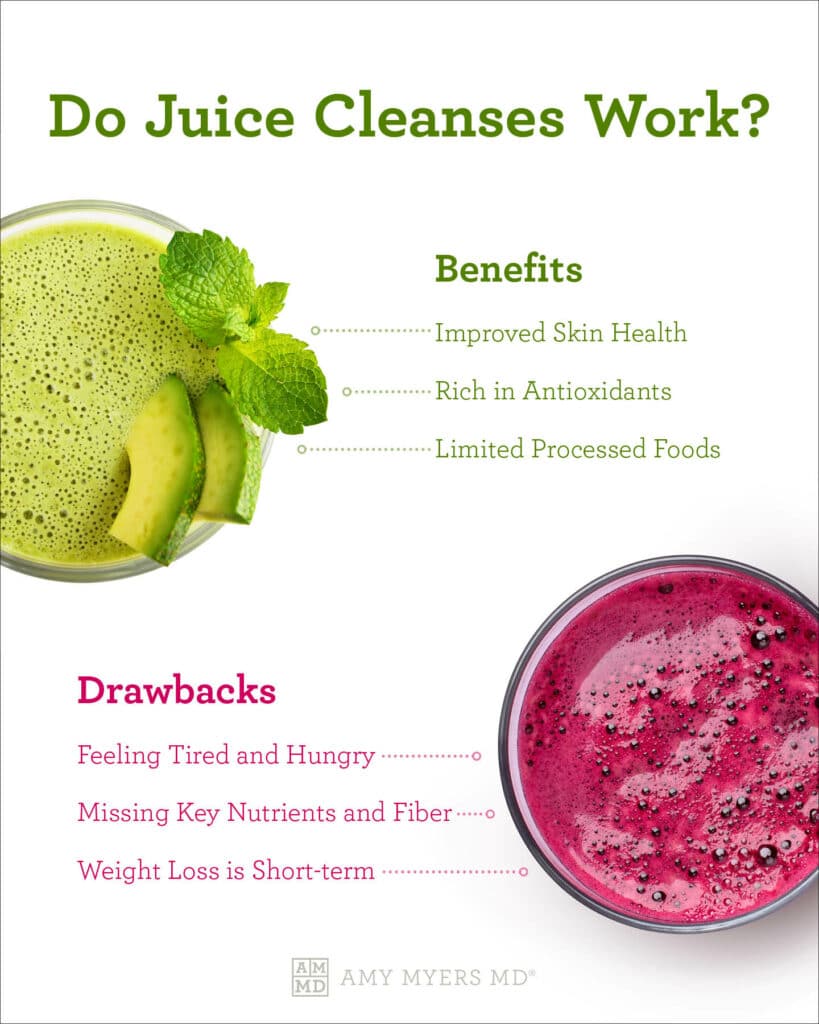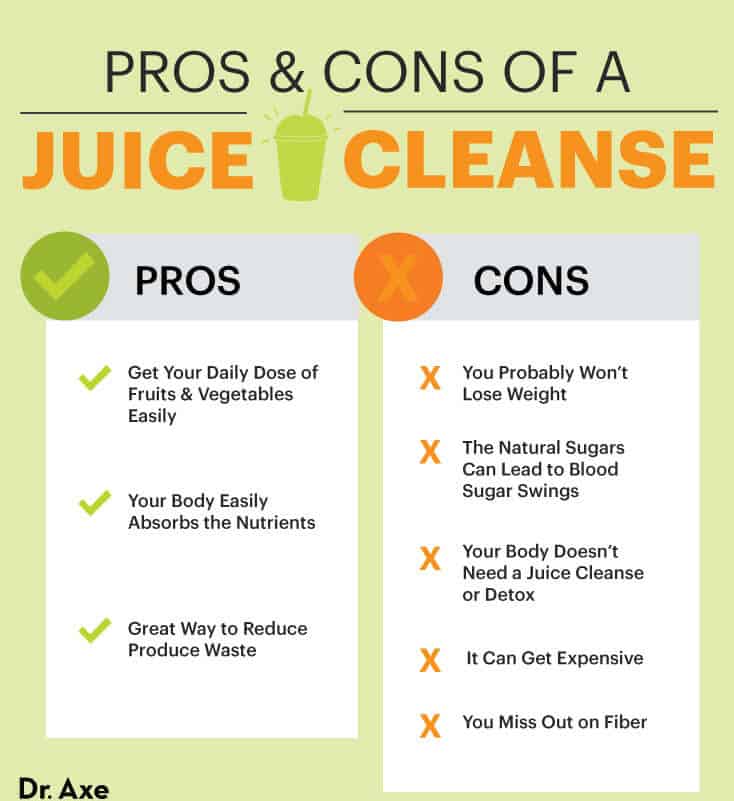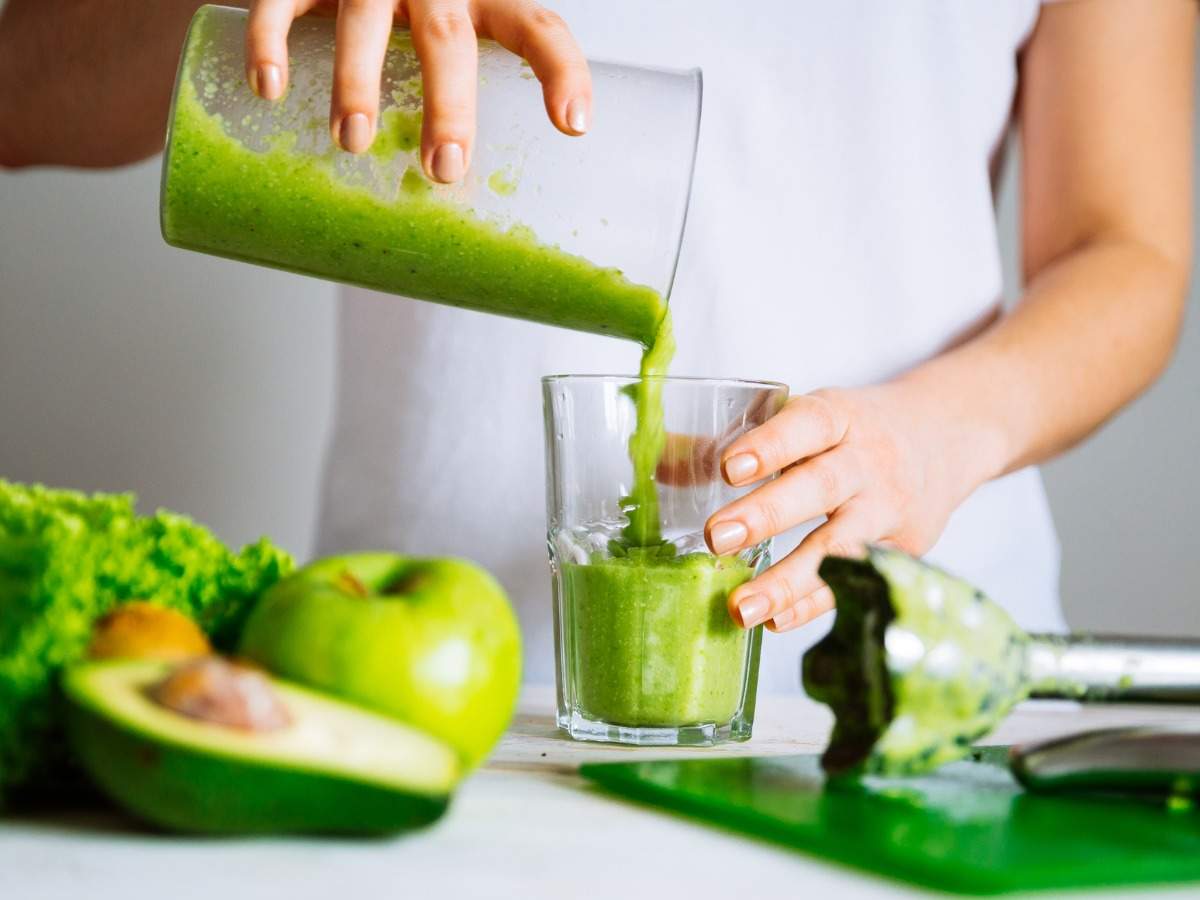Can juice cleanses help with fat loss? Explore the potential benefits and limitations of this popular weight loss approach. Make an informed decision on their role in your weight loss journey.
In today’s health-conscious society, finding effective methods for weight loss is a constant pursuit. Among the countless options available, juice cleanses have gained considerable popularity as a means to shed unwanted pounds. The question remains, however, can juice cleanses truly help with fat loss? Exploring this topic further, it is crucial to examine the potential benefits and limitations of this increasingly favored weight loss approach. To delve into this matter, it is essential to consider the factors that contribute to fat loss and evaluate whether juice cleanses align with these principles. Ultimately, by critically analyzing the evidence and insights surrounding juice cleanses, you can make an informed decision regarding their potential role in your weight loss journey.

What is a juice cleanse?
Definition of a juice cleanse
A juice cleanse is a short-term dietary regimen that involves consuming only fruit and vegetable juices while abstaining from solid foods. It typically lasts for a few days, during which you replace your regular meals with freshly extracted juices. The juices are often made from a variety of fruits and vegetables, aiming to provide your body with essential nutrients and remove toxins.
Purpose of a juice cleanse
The primary purpose of a juice cleanse is to detoxify the body and optimize its functioning. Supporters of juice cleanses believe that by flooding the body with nutrient-packed juices and eliminating solid foods, it allows the digestive system to rest and the body to focus on healing and removing impurities. Additionally, some people opt for juice cleanses as a method for weight loss and improving overall health.
Juice cleanse for weight loss
Juice cleanses as a popular weight loss method
Juice cleanses have gained popularity as a weight loss strategy due to their perceived ability to reduce calorie intake, provide essential nutrients, and promote fat loss. Many individuals consider juice cleanses as a means to jump-start their weight loss journey or to break through a weight loss plateau.
How juice cleanses may contribute to weight loss
One way juice cleanses may contribute to weight loss is by creating a calorie deficit. Since you are consuming significantly fewer calories through juices compared to solid foods, your body will tap into stored fat for energy, leading to weight loss. Additionally, juices are low in fat and contain a high amount of water, which can help increase satiety and control hunger, thereby aiding weight loss efforts.
The impact of calorie restriction on weight loss
Caloric restriction is a key factor in weight loss, regardless of the specific method used. When you consume fewer calories than your body needs to maintain its current weight, it will start utilizing stored fat for energy, resulting in weight loss. However, it is important to understand that the rate of weight loss may vary based on factors such as individual metabolism, body composition, and the duration and intensity of the caloric deficit.
:max_bytes(150000):strip_icc()/juice-cleanse-89120-a-8f02da4fce3f463abd578d2b1c8b1165.jpg)
Understanding fat loss
Difference between weight loss and fat loss
Weight loss and fat loss are often used interchangeably, but they have distinct meanings. Weight loss refers to a decrease in overall body weight, which can occur due to various factors such as water loss, muscle loss, or fat loss. On the other hand, fat loss specifically refers to the reduction in body fat while preserving lean muscle mass.
How the body burns fat
When you consume fewer calories than your body needs, your body starts breaking down stored fat to provide energy. This process is known as lipolysis. The stored fat is converted into fatty acids, which are then released into the bloodstream and used by the body for energy production. Regular physical activity can enhance the body’s ability to burn fat by increasing metabolic rate and promoting the breakdown of stored fat.
Factors influencing fat loss
Several factors can influence the rate and extent of fat loss. These include genetic factors, age, sex, hormone levels, body composition, and overall energy balance. It is important to note that fat loss is not solely dependent on the method used, such as a juice cleanse, but also on maintaining a caloric deficit, engaging in regular physical activity, and adopting a sustainable and balanced approach to nutrition.
Effects of juice cleanses on fat loss
Caloric deficit from juice cleanses
Juice cleanses typically involve consuming significantly fewer calories than your body needs to maintain its current weight. This caloric deficit can lead to fat loss as your body starts utilizing stored fat for energy. However, it is essential to monitor the extent and duration of the caloric deficit to ensure it is within a healthy range and does not lead to nutrient deficiencies or metabolic slowdown.
Implications of short-term caloric deficit
While short-term caloric deficits, such as those experienced during a juice cleanse, can result in initial weight loss, it is important to recognize that this weight loss may be primarily due to water weight and glycogen depletion rather than sustainable fat loss. Once you resume your regular eating patterns, the lost weight may be regained quickly. Sustainable fat loss requires a long-term approach that focuses on creating a moderate and consistent caloric deficit.
Potential muscle mass loss during juice cleanses
When you consume a low-calorie diet, such as during a juice cleanse, there is a risk of muscle loss along with fat loss. Since muscles are metabolically active tissues, they play a crucial role in maintaining a high metabolic rate and supporting long-term fat loss. To preserve muscle mass, it is important to ensure an adequate intake of protein and engage in resistance training exercises.
Metabolism and fat burning during juice cleanses
During a juice cleanse, your metabolism may experience a temporary slowdown due to the reduced caloric intake. While this can initially contribute to weight loss, a prolonged caloric deficit can lead to metabolic adaptations, making it harder to continue losing fat. It is crucial to strike a balance between creating a moderate caloric deficit and maintaining a healthy metabolic rate for sustainable fat loss.

The role of nutrition in fat loss
Macronutrient balance during juice cleanses
Juice cleanses typically provide a high amount of carbohydrates from the natural sugars present in fruits and vegetables. While carbohydrates are an essential energy source, it is important to ensure a balanced macronutrient intake during a juice cleanse by incorporating some protein and healthy fats. This will help support muscle preservation, provide essential nutrients, and maintain overall health.
Impact of nutrient deficiencies on fat loss
Depending solely on juices as a form of nutrition during a cleanse may lead to nutrient deficiencies. Certain nutrients, such as fiber, vitamins, minerals, and essential fatty acids, are primarily found in whole foods. A deficiency in these nutrients can negatively impact overall health and potentially hinder long-term fat loss. It is important to ensure that any cleanse is supplemented with a variety of nutrient-dense fruits, vegetables, and supplements if needed.
The importance of protein for fat loss
Protein is a crucial macronutrient for fat loss as it helps support muscle preservation, increases satiety, and promotes metabolic function. While juices might provide some protein, it is typically inadequate for meeting daily protein requirements. During a cleanse, including a source of lean protein, such as nuts, seeds, or a protein supplement, can help maintain muscle mass and support fat loss efforts.
Effects of micronutrient deficiencies on fat burning
Micronutrients, including vitamins and minerals, play a significant role in the body’s metabolic processes and fat-burning potential. A deficiency in key micronutrients can impair these processes, making it more challenging to achieve fat loss goals. It is important to prioritize a varied and nutrient-dense diet that includes a wide range of fruits, vegetables, and other whole foods to ensure adequate micronutrient intake.
Risks and challenges of juice cleanses
Potential negative effects of juice cleanses
While juice cleanses can be perceived as a quick fix for weight loss, they come with potential risks and negative effects. These can include increased hunger, fatigue, irritability, dizziness, digestive issues, and even nutrient deficiencies. Additionally, juice cleanses may not be suitable for individuals with certain medical conditions or those who are pregnant, nursing, or underweight.
Risk of nutrient imbalances
Consuming solely juices during a cleanse can lead to imbalances in essential nutrients, particularly macronutrients and micronutrients. Restricting certain food groups, such as protein, healthy fats, and whole grains, can result in nutrient deficiencies if not carefully managed. It is important to consult with a healthcare professional or registered dietitian before embarking on a juice cleanse to ensure your nutritional needs are met.
Side effects associated with juice cleanses
Some individuals may experience side effects while on a juice cleanse. These can include changes in bowel movements, increased gas or bloating, headaches, and mood fluctuations. These side effects are often due to the abrupt change in diet and the absence of solid foods. It is important to listen to your body and discontinue the cleanse if any severe or prolonged side effects occur.
Challenges in maintaining long-term fat loss
Juice cleanses, although they may provide short-term weight loss, can pose challenges in maintaining long-term fat loss. This is mainly due to their restrictive nature, which may be difficult to sustain in the long run. Developing sustainable and balanced eating habits, along with regular physical activity, is key to achieving and maintaining long-term fat loss goals.

Effectiveness of juice cleanses for fat loss
Limited scientific evidence on juice cleanse efficacy
While juice cleanses have gained popularity, there is limited scientific evidence specifically examining their effectiveness for fat loss. Most studies tend to focus on weight loss rather than fat loss, and the existing research is often limited in sample size and duration. More rigorous scientific studies are needed to draw definitive conclusions regarding the efficacy of juice cleanses for fat loss.
Mixed results from studies on juice cleanses
The available studies on juice cleanses have produced mixed results regarding their impact on weight loss. Some studies indicate short-term weight loss, while others show no significant difference compared to other forms of caloric restriction. The varying outcomes can be attributed to differences in study design, participant characteristics, and follow-up periods. It is important to consider these factors when evaluating the effectiveness of juice cleanses.
Importance of individual differences in response to juice cleanses
Individual responses to juice cleanses can vary widely. Factors such as metabolic rate, body composition, activity level, and overall health can influence how the body responds to a juice cleanse. It is essential to recognize that what works for one person may not work for another, and personalized approaches to nutrition and fat loss are often more effective.
Other factors influencing fat loss outcomes
While juice cleanses can contribute to creating a caloric deficit and potentially aid fat loss, it is important to consider other factors that influence fat loss outcomes. These include overall dietary patterns, physical activity levels, sleep quality, stress management, and individual adherence to a long-term and sustainable nutritional approach. Achieving and maintaining fat loss requires a comprehensive lifestyle approach rather than relying solely on juice cleanses.
Incorporating juice cleanses into a balanced lifestyle
Potential benefits of juice cleanses beyond fat loss
While the direct impact of juice cleanses on fat loss may be debated, they can offer potential benefits beyond weight management. Juice cleanses can help increase fruit and vegetable intake, provide an array of essential nutrients, support detoxification processes, enhance hydration, and serve as a tool for breaking unhealthy eating habits. When incorporated strategically and as part of a balanced lifestyle, juice cleanses can contribute to overall health and well-being.
Juice cleanses as a tool for jump-starting healthy habits
Juice cleanses can serve as a useful tool for jump-starting healthy habits and initiating positive change. They can help individuals reset their taste preferences, break the cycle of processed and unhealthy foods, and create a foundation for healthier eating patterns. However, it is important to continue building on these habits beyond the cleanse to ensure long-term success in achieving and maintaining fat loss goals.
Considerations when integrating juice cleanses into a balanced diet
When integrating juice cleanses into a balanced diet, it is crucial to consider several factors. These include the quality and variety of juices consumed, the duration and frequency of the cleanse, individual nutrient needs, any existing medical conditions, and personal preferences. It is advisable to seek guidance from a healthcare professional or registered dietitian to optimize the integration of juice cleanses into a balanced and individualized nutrition plan.
Long-term strategies for sustainable fat loss
While juice cleanses can offer short-term benefits, sustainable fat loss requires a long-term and holistic approach. This includes creating a moderate caloric deficit, engaging in regular physical activity, maintaining a balanced macronutrient intake, prioritizing whole foods, managing stress, optimizing sleep, and cultivating healthy habits that are enjoyable and sustainable. Consultation with healthcare professionals can provide guidance in developing personalized strategies for long-term fat loss success.
Conclusion
Considering the limitations of juice cleanses
When evaluating juice cleanses as a method for fat loss, it is important to consider their limitations and potential drawbacks. While they can create a temporary caloric deficit and assist with initial weight loss, they may not lead to sustainable fat loss in the long term. Juice cleanses are restrictive in nature, and nutrient deficiencies, muscle loss, and metabolic adaptations are potential risks to be mindful of.
Individual choice and experimentation
Ultimately, the decision to embark on a juice cleanse for fat loss should be a personal one, made after considering individual goals, preferences, and overall health. Since individual responses to juice cleanses can vary widely, it may require experimentation to determine if it is a suitable approach. However, it is important to prioritize a balanced and sustainable lifestyle that incorporates a wide range of nutrient-dense foods.
Consultation with healthcare professionals
Before starting a juice cleanse or implementing any significant changes to your diet, it is recommended to consult with a healthcare professional or registered dietitian. They can assess your individual needs, provide personalized guidance, and ensure that any chosen approach aligns with your overall health goals.
Balancing short-term goals with long-term lifestyle changes
While juice cleanses may offer short-term benefits for fat loss, they should be seen as one tool among many in the pursuit of long-term fat loss and overall health. It is crucial to strike a balance between short-term goals and long-term lifestyle changes that foster sustainable habits and ensure continued progress towards your desired fat loss outcomes.

